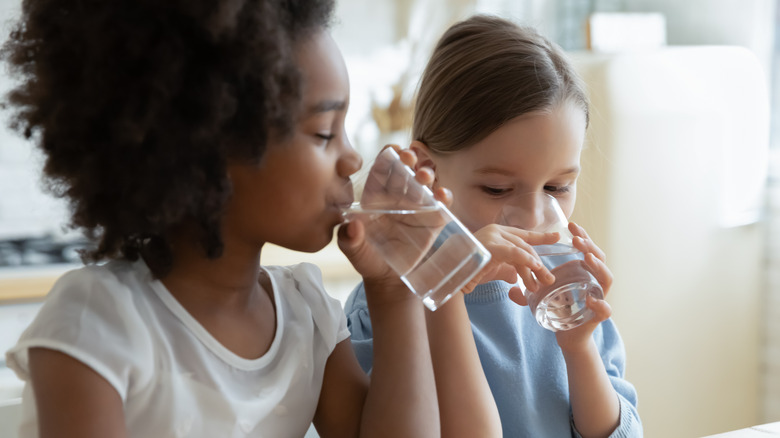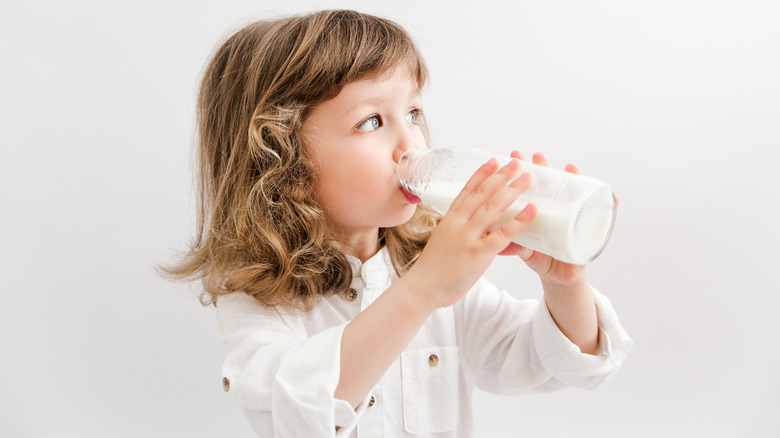How To Know If Your Child Is Dehydrated
Dehydration is a condition that occurs when the body loses more fluids than it takes in. According to Mayo Clinic, children and older adults are more likely to become dehydrated than others. In a 2022 article published in the journal StatPearls, vomiting and diarrhea are cited as the most common causes of dehydration in children. Children have a higher baseline fluid requirement caused by high metabolism, per a 2021 article on MSD Manuals. Other possible causes for dehydration include prolonged sweating, excessive urination, or simply not drinking enough fluids, per Mayo Clinic.
When the body is dehydrated, it does not have enough fluids to function properly, which can lead to a variety of health problems. It's important to note that certain medications can also cause dehydration as a side effect, such as diuretics, laxatives, and some blood pressure medications, says Mayo Clinic. Dehydration can also occur due to various medical conditions. For example, people with diabetes may have an increased risk of dehydration due to increased urination, explains Healthline.
Signs of dehydration in children
Signs of dehydration in children are numerous, and it is important to recognize them so that the child can receive proper treatment. According to the Mayo Clinic, dehydrated children may have dry mouths and tongues. They may not produce tears when they cry. A dehydrated child may produce dark yellow urine, which is a sign that their body is not getting enough fluid, per the Royal Children's Hospital Melbourne. A dehydrated child may feel tired, weak, and less active than normal while exhibiting lightheadedness, dizziness, and sunken eyes.
In general, if a child is showing several of these symptoms, or if you have any reason to suspect that they are dehydrated, it's best to seek medical attention. As mentioned, children are at a higher risk of getting dehydrated than adults due to their high metabolism and tendency to forget to drink fluids. In hot weather or while being sick, they might be at an even higher risk. It's important to keep an eye on children when they're playing outdoors and make sure they drink enough fluids to stay properly hydrated.
How is dehydration in children treated?
Treatment for dehydration in children typically involves replacing the fluids that have been lost. The specific treatment approach will depend on the severity of the dehydration and the underlying cause. According to Mayo Clinic, an oral rehydration solution is a safe and effective option. It can be given at home to help replace fluids and electrolytes lost through diarrhea or vomiting. You can purchase the solution at most over the counter without a prescription, and it can be mixed with water.
The Royal Children's Hospital Melbourne advises against giving the child sugary drinks or caffeine, as they can actually dehydrate the child further.
For severe dehydration, the child may need to receive fluids through an IV — which requires hospitalization. According to the hospital, IV fluids will usually involve the use of a feeding tube attached to the stomach. Generally speaking, dehydration can be a serious condition, and early recognition and treatment are crucial.



